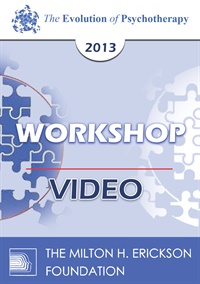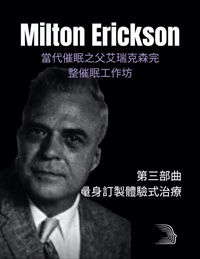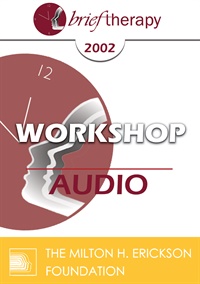
- Average Rating:
- Not yet rated
- Topic Areas:
- Workshops | Habits | Addiction | Brief Therapy | Ericksonian Hypnosis and Therapy Techniques | Tailoring
- Categories:
- Brief Therapy Conference | Brief Therapy Conference 2002
- Faculty:
- Jeffrey Zeig, PhD
- Duration:
- 2:31:23
- Format:
- Audio Only
- Original Program Date:
- Dec 14, 2002
- Short Description:
- A method will be presented for joining strategic assessment and intervention to create pattern disruption and elicit resources for change. Essentials of an Ericksonian method for tailoring approaches to habit control will be offered. Weight and smoking control will be emphasized.
- Price:
- $15.00 - Base Price
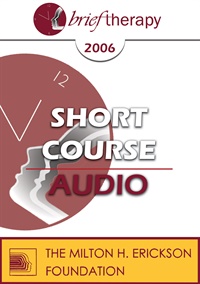
- Average Rating:
- Not yet rated
- Topic Areas:
- Short Courses | Brief Therapy | Tailoring | Therapeutic Relationship | Therapist Development
- Categories:
- Brief Therapy Conference | Brief Therapy Conference 2006
- Faculty:
- Scott Shimabukuru, PhD | Les Blondino, LPC, LMFT
- Duration:
- 1:14:03
- Format:
- Audio Only
- Original Program Date:
- Dec 07, 2006
- Short Description:
- Even a very thoughtful therapeutic strategy can leave a client and therapist spinning their wheels with much effort and little progress. It is very easy then for both to try something new only to inadvertently do more of the same. Participants will learn the methods of the therapeutic u-turn which includes lateral thinking and tailoring of a new objective. Lecture, slides and video tape examples will be used to illustrate points.
- Price:
- $15.00 - Base Price
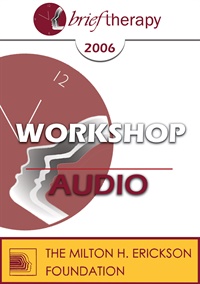
- Average Rating:
- Not yet rated
- Topic Areas:
- Workshops | Psychotherapy | Tailoring | Relationships | Brief Therapy | Therapeutic Relationship
- Categories:
- Brief Therapy Conference | Brief Therapy Conference 2006
- Faculty:
- John C. Norcross, PhD
- Duration:
- 2:38:59
- Format:
- Audio Only
- Original Program Date:
- Dec 09, 2006
- Short Description:
- BT06 Workshop 14 - Psychotherapy Relationships That Work: Tailoring the Relationship to the Individual Patient - John Norcross, PhDPsychotherapy will maximize its effectiveness by targeting the most powerful sources of change, the therapeutic relationship and the patient him/herself. This practical workshop will provide an integrative structure for customizing therapy relationships to individual clients. Participants will learn to reliably assess and rapidly apply four evidence-based guidelines (patient preferences, stages of change, resistance level, real-time feedback) for constructing the "relationship of choice."
- Price:
- $15.00 - Base Price
- Average Rating:
- Not yet rated
- Topic Areas:
- Fundamentals of Hypnosis | Hypnosis | Phenomenology | Hypnotic Induction | Trance | Tailoring
- Categories:
- Brief Therapy Conference | Brief Therapy Conference 2008
- Faculty:
- Jeffrey Zeig, PhD
- Course Levels:
- Master Degree or Higher in Health-Related Field
- Duration:
- 2:23:04
- Format:
- Audio and Video
- Original Program Date:
- Dec 11, 2008
- Short Description:
- Hypnosis is not a thing, but a way that things happen. To make hypnosis happen a clinician needs to understand the underlying architecture of trance. Eliciting systemic components elicits trance. The grammar, context and relational elements of eliciting these components will be explained. We will develop an induction model based on three steps. This workshop will consist of lecture, demonstration and small group practice.
- Price:
- $29.00 - Base Price
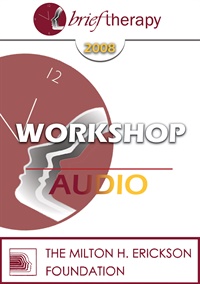
- Average Rating:
- Not yet rated
- Topic Areas:
- Workshops | Psychotherapy | Tailoring | Relationships | Brief Therapy | Therapeutic Relationship | Therapist Development
- Categories:
- Brief Therapy Conference | Brief Therapy Conference 2008
- Faculty:
- John C. Norcross, PhD
- Duration:
- 2:28:30
- Format:
- Audio Only
- Original Program Date:
- Dec 12, 2008
- Short Description:
- Psychotherapy will maximize its effectiveness by targeting the most powerful sources of change: the therapeutic relationship and the patient him/herself. This clinical workshop will provide integrative methods for customizing therapy relationships to individual patients. Participants will learn to reliably assess and rapidly apply four evidence-based guidelines (patient preferences, stages of change, resistance level, and real-time feedback) for constructing the "relationship of choice."
- Price:
- $15.00 - Base Price
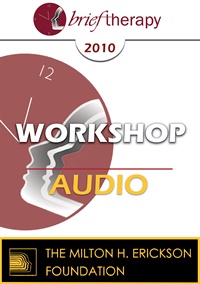
- Average Rating:
- Not yet rated
- Topic Areas:
- Psychotherapy | Workshops | Tailoring
- Categories:
- Brief Therapy Conference | Brief Therapy Conference 2010
- Faculty:
- John C. Norcross, PhD
- Duration:
- 2:25:09
- Format:
- Audio Only
- Original Program Date:
- Dec 10, 2010
- Short Description:
- BT10 Workshop 13 - Tailoring the Therapy Relationship to the Individual Client: Evidence-Based Practices - John C. Norcross, PhD Psychotherapy will maximize its effectiveness by targeting the most powerful sources of change: the therapeutic relationship and the patient him/herself. This workshop will provide demonstrably effective methods to tailor therapy relationships to individual patients. You will learn to reliably assess and rapidly apply 4 evidence-based methods (patient preferences, stages of change, reactance level, real-time feedback) for constructing the “relationship of choice.”
- Price:
- $15.00 - Base Price
Tags: Relationships
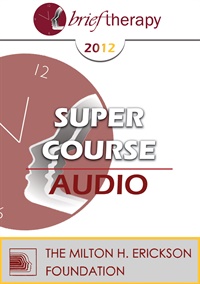
- Average Rating:
- Not yet rated
- Topic Areas:
- Psychotherapy | Super Courses | Tailoring | Mindfulness
- Categories:
- Brief Therapy Conference | Brief Therapy Conference 2012
- Faculty:
- Ronald Siegel, PsyD
- Duration:
- 4:40:35
- Format:
- Audio Only
- Original Program Date:
- Dec 09, 2012
- Short Description:
- BT12 Super Course 03 – Harnessing Mindfulness: Tailoring the Practice to the Problem – Ronald Siegel, PsyD Mindfulness-based psychotherapy is the most popular new treatment approach in the last decade—and for good reason. Mindfulness practices hold great promise both for our own personal development and as remarkably powerful tools to augment virtually every form of psychotherapy. Mindfulness is not, however, a one-size-fits-all remedy. In this workshop you’ll learn how mindfulness practices work to alleviate psychological distress, and how to creatively tailor them to meet the needs of diverse people and conditions. We’ll examine how to use mindfulness practices to help resolve disorders such as anxiety, depression, and stress-related medical problems, while enriching and enlivening therapeutic work.
- Price:
- $15.00 - Base Price
Tags: Mindfulness
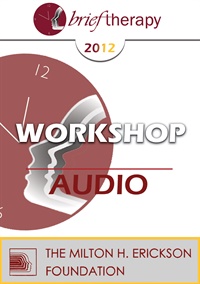
- Average Rating:
- Not yet rated
- Topic Areas:
- Workshops | Feedback Informed Treatment (FIT) | Relationships | Tailoring | Therapeutic Relationship | Therapist Development
- Categories:
- Brief Therapy Conference | Brief Therapy Conference 2012
- Faculty:
- Scott Miller, PhD
- Duration:
- 2:43:41
- Format:
- Audio Only
- Original Program Date:
- Dec 06, 2012
- Short Description:
- The field of therapy is undergoing a period of dramatic change: regulatory and documentation requirements, government cutbacks and changing insurance policies, declining incomes and economic uncertainty. Thankfully, a simple, evidence-based alternative exists for maximizing the effectiveness and efficiency of treatment based on using ongoing client feedback to empirically tailor services to the individual client needs and characteristics. Over a dozen randomized clinical trials, involving a wide range of clients and presenting complaints, document that the principles and practices associated with Feedback Informed Treatment (FIT) improve outcomes and client satisfaction by as much as 65%, cuts dropout rates in half, and decreases the risk of deterioration by one third.
- Price:
- $15.00 - Base Price
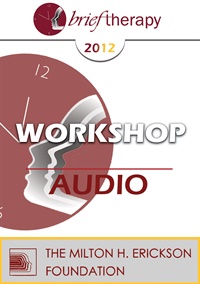
- Average Rating:
- Not yet rated
- Topic Areas:
- Workshops | Tailoring
- Categories:
- Brief Therapy Conference | Brief Therapy Conference 2012
- Faculty:
- John C. Norcross, PhD
- Duration:
- 2:52:34
- Format:
- Audio Only
- Original Program Date:
- Dec 08, 2012
- Short Description:
- BT12 Workshop 43 – Stages of Change: Tailoring the Treatment Method and the Therapy Relationship to the Individual Client – John Norcross, PhD, ABPP Backed by 30 years of research, this workshop provides demonstrably effective methods for adapting the treatment method and the therapy relationship to the patient’s stage of change. You will learn to rapidly assess the stages of change (precontemplation, contemplation, preparation, action, and maintenance) and then to match processes of change specific to that stage. “Doing the right thing at the right time” is the key to efficient change. This workshop features focused lectures, clinical examples, practice exercises, interactive discussions, and participants’ own case material.
- Price:
- $15.00 - Base Price
Tags: Relationships
- Average Rating:
- Not yet rated
- Topic Areas:
- Clinical Demonstrations | Feedback Informed Treatment (FIT) | Relationships | Therapeutic Relationship | Tailoring | Therapist Development
- Categories:
- Brief Therapy Conference | Brief Therapy Conference 2014
- Faculty:
- Michael Yapko, PhD
- Course Levels:
- Master Degree or Higher in Health-Related Field
- Duration:
- 55:44
- Format:
- Audio and Video
- Original Program Date:
- Dec 13, 2014
- Short Description:
- This demonstration shows how real-time client feedback can transform therapy into a collaborative, adaptive process. Using tools like the Outcome Rating Scale and Session Rating Scale, a volunteer experiences how progress and alliance can be tracked session by session. Participants see how feedback helps identify stuck points, prevent dropout, and improve outcomes across diverse settings—including work with adolescents, mandated clients, and even brief crisis contacts.
- Price:
-
Sale is $29.00
price reduced from Base Price - $59.00
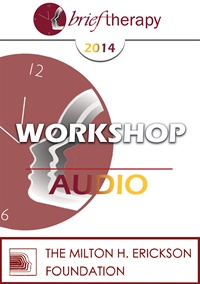
- Average Rating:
- Not yet rated
- Topic Areas:
- Workshops | Feedback Informed Treatment (FIT) | Tailoring | Therapist Development | Psychotherapy | Brief Therapy
- Categories:
- Brief Therapy Conference | Brief Therapy Conference 2014
- Faculty:
- Scott Miller, PhD
- Duration:
- 1:42:31
- Format:
- Audio Only
- Original Program Date:
- Dec 12, 2014
- Short Description:
- It’s not a pretty picture. Available evidence indicates that the effectiveness of psychotherapy has not improved in spite of 100 years of theorizing and research. What would help? Not learning a new model of therapy or the “latest” so-called “evidence-based” treatment approach. And no, not attending another CEU event or sorting through that stack of research journals by your desk. A simple, valid, and reliable alternative exists for maximizing the effectiveness and efficiency of treatment based on using ongoing client feedback to empirically tailor services to the individual client needs and characteris- tics.
- Price:
- $15.00 - Base Price
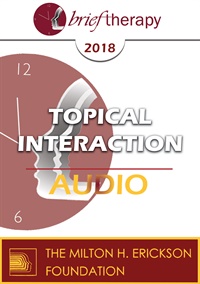
- Average Rating:
- Not yet rated
- Topic Areas:
- Topical Interactions | Feedback Informed Treatment (FIT) | Tailoring | Relationships | Therapeutic Relationship | Therapist Development
- Categories:
- Brief Therapy Conference | Brief Therapy Conference 2018
- Faculty:
- Scott Miller, PhD
- Duration:
- 57:17
- Format:
- Audio Only
- Original Program Date:
- Dec 08, 2018
- Short Description:
- Available evidence indicates that the effectiveness of psychotherapy has not improved despite 100 years of theorizing and research. What would help? Not learning a new model of therapy or the “latest” so-called “evidence-based” treatment approach. A simple, valid, and reliable alternative exists for maximizing the effectiveness and efficiency of treatment based on using ongoing feedback to empirically tailor services to the individual client needs and characteristics. Research from multiple randomized clinical trials documents that this simple, transtheoretical approach as much as doubles the effectiveness of treatment while simultaneously reducing costs, drop-out rates and deterioration. At this "Topical Interaction," participants will have a chance to address any practical issues, questions or challenges associated with incorporating outcome and alliance measures into their practice.
- Price:
- $15.00 - Base Price
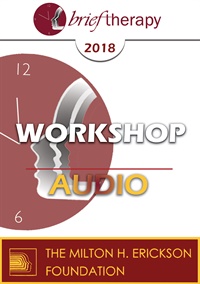
- Average Rating:
- Not yet rated
- Topic Areas:
- Workshops | Tailoring | Mindfulness | Psychotherapy | Brief Therapy
- Categories:
- Brief Therapy Conference | Brief Therapy Conference 2018
- Faculty:
- Ronald Siegel, PsyD
- Duration:
- 1:56:11
- Format:
- Audio Only
- Original Program Date:
- Dec 07, 2018
- Short Description:
- Mindfulness and compassion practices hold great promise not only for our own personal development, but also as remarkably powerful tools to augment virtually every form of psychotherapy. They are not, however, one-size-fits-all remedies. Practices need to be tailored to fit the needs of particular individuals—and this presentation will show you how to creatively adapt them to meet the needs of diverse people and conditions.
- Price:
- $15.00 - Base Price
- Average Rating:
- Not yet rated
- Topic Areas:
- Clinical Demonstrations | Psychotherapy | Feedback Informed Treatment (FIT) | Relationships | Therapeutic Relationship | Tailoring | Therapist Development
- Categories:
- Evolution of Psychotherapy | Evolution of Psychotherapy 2013
- Faculty:
- Scott Miller, PhD
- Course Levels:
- Master Degree or Higher in Health-Related Field
- Duration:
- 1:00:38
- Format:
- Audio and Video
- Original Program Date:
- Dec 13, 2013
- Short Description:
- Feedback-Informed Treatment (FIT) dramatically improves both retention and outcome of behavioral health services. FIT involves routinely and formally soliciting feedback from clients regarding the therapeutic alliance and outcome of care and using the resulting information to inform and tailor service delivery. Dr. Miller will demonstrate how clinicians can integrate FIT into their work regardless of theoretical orientation or professional discipline.
- Price:
-
Sale is $29.00
price reduced from Base Price - $59.00
- Average Rating:
- Not yet rated
- Topic Areas:
- Workshops | Feedback Informed Treatment (FIT) | Relationships | Tailoring | Therapeutic Relationship | Therapist Development
- Categories:
- Evolution of Psychotherapy | Evolution of Psychotherapy 2013
- Faculty:
- Scott Miller, PhD
- Course Levels:
- Master Degree or Higher in Health-Related Field
- Duration:
- 1:11:21
- Format:
- Audio and Video
- Original Program Date:
- Dec 15, 2013
- Short Description:
- It’s not a pretty picture. Available evidence indicates that the effectiveness of psychotherapy has not improved in spite of 100 years of theorizing and research. What would help? Not learning a new model of therapy. And no, not attending another CEU event or sorting through that stack of research journals by your desk. A simple, valid, and reliable alternative exists for maximizing the effectiveness and efficiency of treatment based on using ongoing client feedback to empirically tailor services to the individual client’s needs and characteristics. The Substance Abuse and Mental Health Services Administration recently deemed feedback informed treatment (FIT) an evidence-based practice.
- Price:
-
Sale is $29.00
price reduced from Base Price - $59.00
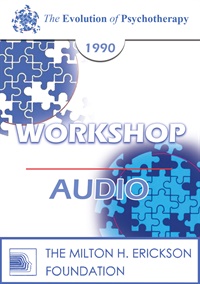
- Average Rating:
- Not yet rated
- Topic Areas:
- Workshops | Ericksonian Hypnosis and Therapy Techniques | Psychotherapy | Tailoring | Utilization | Indirection
- Categories:
- Evolution of Psychotherapy | Evolution of Psychotherapy 1990
- Faculty:
- Jeffrey Zeig, PhD
- Duration:
- 2 Hours 22 Minutes
- Format:
- Audio Only
- Original Program Date:
- Dec 16, 1990
- Short Description:
- Ericksonian approaches use both direct and indirect techniques and tailor methods to the unique characteristics of individual patients. Diagnostic categories can be used to individualize treatment. These tailored techniques are ways of "gift wrapping" ideas so that patients can best actuate effective changes. The concept of "Utilization'' and methods of processing interventions will be discussed. In Ericksonian treatment, dynamic experiences precede dynamic understanding.
- Price:
- $15.00 - Base Price
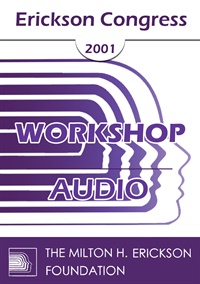
- Average Rating:
- Not yet rated
- Topic Areas:
- Workshops | Tailoring
- Categories:
- Erickson Congress | Erickson Congress 2001
- Faculty:
- Jeffrey Zeig, PhD
- Duration:
- 2:25:11
- Format:
- Audio Only
- Original Program Date:
- Dec 07, 2001
- Short Description:
- IC01 Workshop 14 - Tailoring - Jeffrey K. Zeig, PhD
- Price:
- $15.00 - Base Price
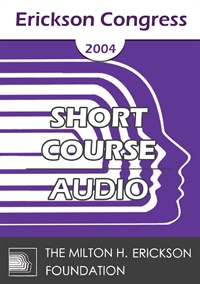
- Average Rating:
- Not yet rated
- Topic Areas:
- Short Courses | Ericksonian Psychotherapy | Interspersal | Tailoring | Utilization | Art and Creativity | Trance | Ericksonian Hypnosis and Therapy Techniques | Music
- Categories:
- Erickson Congress | Erickson Congress 2004
- Faculty:
- Maria Escalante de Smith, MA
- Duration:
- 1:18:14
- Format:
- Audio Only
- Original Program Date:
- Dec 02, 2004
- Short Description:
- Ericksonian psychotherapy emphasizes the importance of tailoring. In this workshop, we will learn how to utilize sung trances where the client's own vocabulary, interspersal and future orientation will be used. Brief interventions will be presented while using sung trances and participants will learn how to compose their own interventions using music and hypnotic language. Audience participation will be invited.
- Price:
- $15.00 - Base Price

- Average Rating:
- Not yet rated
- Topic Areas:
- Short Courses | Children and Adolescent Therapy | Ericksonian Hypnosis and Therapy Techniques | Ericksonian Psychotherapy | Psychotherapy | Utilization | Tailoring
- Categories:
- Erickson Congress | Erickson Congress 2007
- Faculty:
- Maria Escalante de Smith, MA
- Duration:
- 1:18:55
- Format:
- Audio Only
- Original Program Date:
- Dec 07, 2007
- Short Description:
- Ericksonian psychotherapy emphasizes the utilization of our resources. When I treat children with enuresis, I focus on resources and keep in mind that Ericksonian interventions should be brief because children may get tired of being in therapy for too long. Techniques tailored to a child and examples of inductions such as eye fixation utilizing toys will be presented. I will emphasize how to make several brief interventions quickly while utilizing "non human co-therapists" during home assignments, and the combination of conversational trance with tasks.
- Price:
- $15.00 - Base Price
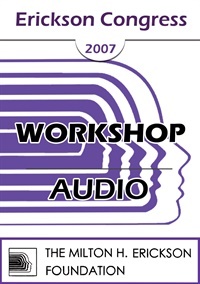
- Average Rating:
- Not yet rated
- Topic Areas:
- Workshops | Children and Adolescent Therapy | Tailoring | Strategic Therapy
- Categories:
- Erickson Congress | Erickson Congress 2007
- Faculty:
- Janet Sasson Edgette, PsyD
- Duration:
- 1:52:06
- Format:
- Audio Only
- Original Program Date:
- Dec 07, 2007
- Short Description:
- Few therapy approaches were designed specifically with adolescents in mind. Teenagers often describe therapy as irrelevant and boring. This approach replaces an emphasis on feelings, confidentiality, and non-judgmental support with a focus on therapist credibility, client accountability, and un-affected conversation – factors that are more affecting to these kids, many of whom never asked for our help in the first place. Participants learn how to establish themselves as credible figures to their teen clients, boldly hold those clients accountable for their choices, and build compelling conversations sentence by sentence that have genuine meaning and striking impact.
- Price:
- $15.00 - Base Price
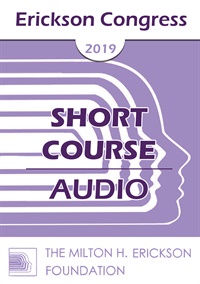
- Average Rating:
- Not yet rated
- Topic Areas:
- Short Courses | Pain and Healing | Tailoring | Trauma
- Categories:
- Erickson Congress | Erickson Congress 2019
- Faculty:
- James Keyes, PhD
- Duration:
- 1 Hour 32 Minutes
- Format:
- Audio Only
- Original Program Date:
- Dec 12, 2019
- Short Description:
- During this presentation, the development of chronic pain syndromes and some practical interventions will be discussed. Specifically, assessing patient's current functioning within a "whole-person approach" will allow clinicians better information about where to begin assisting with change. While using the "evidence-based treatments" as a starting point, finding ways to tailor the intervention to the individual will be reviewed. We will honor the long-history of hypnosis being used to treat chronic pain. Finally, we will review outcome research indicating what seems to make the most effect for patients with pain.
- Price:
- $15.00 - Base Price
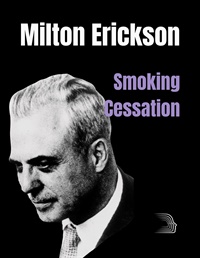
- Average Rating:
- Not yet rated
- Topic Areas:
- Ericksonian Hypnosis and Therapy Techniques | Milton Erickson | Addiction | Habits | Tailoring | Hypnosis
- Categories:
- Erickson Streaming Video Collection | Erickson Materials | Milton H. Erickson Collections
- Faculty:
- Jeffrey Zeig, PhD | Milton H. Erickson, MD
- Course Levels:
- Master Degree or Higher in Health-Related Field
- Duration:
- 1h 14m
- Format:
- Audio and Video
- Original Program Date:
- May 07, 2021
- Short Description:
- A client asks Erickson to help him stop smoking tobacco. Rather than using a formula, Erickson tailors a treatment approach to both address underlying problems and elicit resources.
- Price:
- $39.95 - Base Price
- Average Rating:
- Not yet rated
- Topic Areas:
- Milton Erickson | Ericksonian Hypnosis and Therapy Techniques | Experiential Therapy | Tailoring | Trance | Unconscious Processes
- Categories:
- Erickson Materials | Erickson Streaming Video Collection | Milton H. Erickson Collections | World Languages | Chinese
- Faculty:
- Milton H. Erickson, MD | Jeffrey Zeig, PhD
- Course Levels:
- Master Degree or Higher in Health-Related Field
- Duration:
- 1 Hour 15 Minutes
- Format:
- Audio and Video
- Original Program Date:
- May 07, 2020
- Short Description:
- 在這第三部曲,艾瑞克森延續發展個案的深刻催眠體驗。艾瑞克森也提供學生們反思進步的機會,兩個(福爾摩斯等級)的問題等著你來回答。艾瑞克森問學生們的問題,你答得出來嗎?
- Price:
- $29.99 - Base Price





